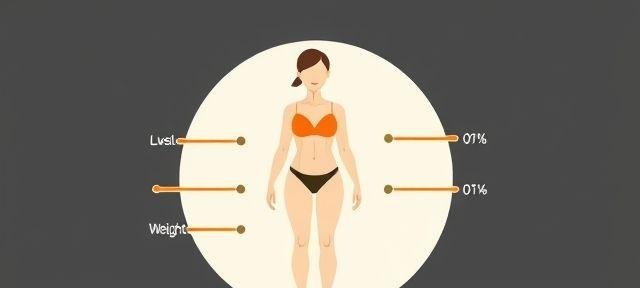For more information, consider watching a video by Kung Fit.
Seriously, are you still guessing at how many calories you should be eating? I used to. For years, I’d religiously track food, meticulously logging every bite, but the scale barely budged. I was exhausting myself with restrictions, feeling deprived, and honestly, completely demoralized. It wasn’t until I dove deep into understanding my individual needs – my activity level, body composition, and actual metabolic rate – that things started to click. The truth is, a generic “lose 1000 calories a day” approach rarely works, and can even backfire, slowing down your metabolism in the long run. Forget the fad diets and the one-size-fits-all advice. Finding your ideal calorie intake isn’t about deprivation; it’s about smart, personalized fueling. And that’s where a reliable calorie calculator comes in. It’s not magic, but it is a powerful tool to finally unlock sustainable weight loss – and I’m going to show you how to use it to your advantage.
Understanding Your Basal Metabolic Rate (BMR)
Before diving into calorie deficits, it’s crucial to understand your Basal Metabolic Rate (BMR). Simply put, your BMR is the number of calories your body burns at rest to maintain essential functions like breathing, circulation, and cell production. It accounts for the majority of your daily calorie expenditure – often around 60-75% for most people. Knowing your BMR is the foundation for calculating how many calories you need to lose weight.

How is BMR Calculated?
Several formulas can estimate your BMR. The Harris-Benedict equation is a commonly used one. However, more accurate calculators are available online that consider factors like age, gender, height, and weight. These calculators often offer a more precise estimate.
While formulas are helpful, remember they are estimations. Individual metabolic rates can vary. Factors like muscle mass, genetics, and even hormonal imbalances can influence your BMR. So, how can I get a more accurate BMR calculation? Using an online BMR calculator that considers a broader range of variables is the best approach.

Calculating Your Daily Calorie Needs for Weight Loss
To lose weight, you need to consume fewer calories than you burn. This creates a calorie deficit. However, drastically cutting calories can be counterproductive, leading to nutrient deficiencies and a slowed metabolism. The key is to create a sustainable deficit.
Determining a Safe Calorie Deficit
A safe and effective calorie deficit is typically 500-750 calories per day. This generally translates to a weight loss of 1-2 pounds per week. A larger deficit might lead to muscle loss and a less sustainable approach. It’s generally not recommended to go below 1200 calories per day for women or 1500 calories per day for men without medical supervision.

How many calories should I eat to lose weight? This depends on your BMR and activity level, but starting with a 500-calorie deficit is a good benchmark.
Considering Your Activity Level
Your BMR is just the starting point. Physical activity significantly impacts your daily calorie expenditure. The more active you are, the more calories you burn.

Activity Multipliers: A Closer Look
Most calorie calculators use activity multipliers to account for exercise. These multipliers represent the number of calories burned during different levels of activity. Here’s a general breakdown:
- Sedentary (little to no exercise): BMR x 1.2
- Lightly Active (light exercise/sports 1-3 days/week): BMR x 1.375
- Moderately Active (moderate exercise/sports 3-5 days/week): BMR x 1.55
- Very Active (hard exercise/sports 6-7 days a week): BMR x 1.725
- Extra Active (very hard exercise/sports & physical job or 2x training): BMR x 1.9
How many calories should I consume a day to lose weight if I’m moderately active? Using the BMR x 1.55 formula, you can estimate your daily calorie needs.
Macro Calculation for Fat Loss: Protein, Carbs, and Fats
While overall calorie intake is vital for weight loss, the types of calories you consume matter too. A macro calculator for fat loss helps determine the optimal balance of protein, carbohydrates, and fats.
The Importance of Protein
Protein is crucial for preserving muscle mass during weight loss, boosting satiety (keeping you feeling full), and having a higher thermic effect (meaning your body burns more calories digesting it). Aim for 0.8-1 gram of protein per pound of body weight.
Carbs vs. Fats: What’s the Difference?
The ratio of carbs to fats is a personal preference. Some people thrive on lower-carb diets, while others do better with moderate carbohydrate intake. Focus on complex carbohydrates (whole grains, vegetables) and healthy fats (avocados, nuts, olive oil).
Should I use a macro calculator for fat loss? Yes! It provides a detailed breakdown of your ideal protein, carbohydrate, and fat intake, helping you optimize your diet for weight loss and muscle preservation.
Using a Calorie and Weight Loss Calculator
Fortunately, many online tools can simplify the process. A calorie and weight loss calculator takes into account your personal information (age, gender, height, weight, activity level) to estimate your daily calorie needs and projected weight loss timeline. These calculators often provide personalized recommendations and are a convenient starting point.
Where can I find a reliable calorie and weight loss calculator? Many reputable websites offer free calculators. Look for calculators that are backed by scientific principles and regularly updated.
The Weight Loss Percentage Calculator: Tracking Your Progress
While calorie calculators help determine how many calories to eat, a weight loss percentage calculator helps you track your progress. This calculator takes your starting weight and target weight and estimates the percentage of body weight you need to lose. Monitoring your progress can keep you motivated and help you adjust your calorie intake as needed.
How do I use a weight loss percentage calculator? Simply input your current weight and your desired weight to get an estimate of your weight loss percentage.
Staying Consistent and Monitoring Progress
Remember, calculating your calorie needs is just the first step. Consistency is key to successful weight loss. Track your food intake, monitor your weight regularly, and adjust your calorie intake as needed based on your results.
How many calories should I eat daily to lose weight consistently? This requires ongoing monitoring and adjustments. Track your progress for several weeks, and if you’re not seeing the desired results, you might need to slightly reduce your calorie intake or increase your activity level. Listen to your body and make adjustments as needed.
Disclaimer
This blog post is for informational purposes only and does not constitute medical advice. It is essential to consult with a healthcare professional or registered dietitian before making any significant changes to your diet or exercise routine.
Leave a Reply